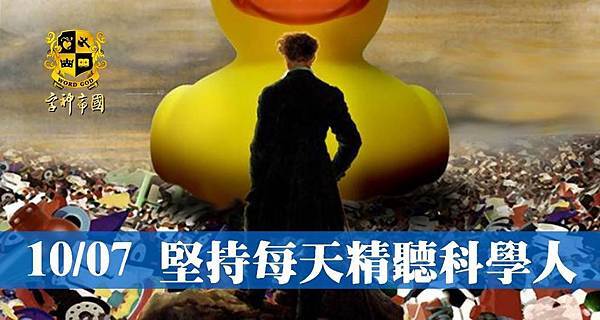昨天托福閱讀班同學們,也說有堅持每天聽,這樣一定會進步的哦。
![]() 今日主題:Quarter-Million Tons of Plastic Plague Oceans
今日主題:Quarter-Million Tons of Plastic Plague Oceans
二十多萬噸塑料垃圾「折磨著」大海
![]() 托福聽力最好的課外教材:60-Second Science
托福聽力最好的課外教材:60-Second Science
康康精選托福會考的主題,堅持每天精聽一定會進步的哦!!
![]() 建議方法:
建議方法:
1. 先聽兩三遍(不看文稿)
2. 再一句一句聽寫
3. 最後check文稿,看哪聽不出來,是單字沒背過,還是單字發音不熟。
4. 堅持天天聽,就能每天進步哦。
![]() MP3音檔:喜歡的同學,幫忙推或按讚哦~~
MP3音檔:喜歡的同學,幫忙推或按讚哦~~
http://online1.tingclass.net/voaspe/…/20141225sa_science.mp3
![]() 只有音檔怎夠,聽不懂地方,不用怕,康康幫你準備好中英文稿了:
只有音檔怎夠,聽不懂地方,不用怕,康康幫你準備好中英文稿了:
![]() 中英文稿:
中英文稿:
The Great Pacific Garbage Patch may be the most infamous of the world's floating trash dumps. But it's far from the only one. There's plastic trash littering "the Bay of Bengal, the Mediterranean Sea, the coast of Indonesia, all five subtropical gyres; coastal regions, enclosed bays, seas and gulfs." Marcus Eriksen, director of research at the Five Gyres Institute.
泛太平洋垃圾帶應該是世上最臭名昭著的漂流垃圾場。但它絕不是唯一的一個。「在孟加拉灣,地中海,印尼海岸,五大亞熱帶旋流,沿海地區,封閉的港灣、海域和海灣處」都有塑料垃圾廢棄帶。五大旋流研究所的研究部主任——馬庫斯‧埃裡克森說。
\Eriksen surveyed those areas, along with his seafaring colleagues. Collectively, they spent some 900 hours logging every large piece of plastic they could spot from their boats. And they trawled for plastic nearly 700 times along the way, picking through their nets and cataloguing the debris. "I find the necks of bottles, fragments of toothbrushes and combs. Action figure parts. Army men. I find a lot of army men."
埃裡克森同他的航海業同事調查了這些地區。他們全體航游了九百多個小時,記錄了所有他們能夠從船上勘測到的塑料垃圾帶。一路上他們用漁網網住塑料垃圾七百 多次,從漁網中挑出垃圾殘骸並為它們編目。「我發現了瓶頸、牙刷和梳子的殘骸。玩具軍人——動作玩具人的部件。我找到許多玩具軍人。」
The researchers plugged that trash census data into ocean models, which simulate the circulation of the world's waters. Based on the densities of trash the researchers found, the models predicted some 5.25 trillion particles of plastic may be floating out there…adding up to about 269,000 tons. And more than 90 percent of those pieces may be smaller than a grain of rice. The study appears in the journal PLOS ONE.
研究人員將垃圾的「戶口普查資料」數據,放到模仿世界水域循環的海洋模型中。根據研究人員發現的垃圾密度,模型預測到約5萬2千5百億塑料粒子漂浮於海域中。。。。。。總計達26萬9千噸。而那些粒子中可能有90%比一粒米還小。該研究發佈於《公共科學圖書館》期刊上。
What happens to all that plastic? "The ocean's going to take it, blast it to smithereens, it's going to cycle it through marine organisms, and sink it to the sea floor. That's the ultimate life cycle, I believe, for plastics. We're like constantly sprinkling fish food on the entire ocean surface." The solution, Marcus says, isn't some fleet of seafaring garbage trucks. It's keeping our trash to ourselves—which would be a sea change in behavior.
那些塑料會怎麼樣呢?「大海會收留它們,將它們沖成碎片。大海會通過海洋有機物使其循環,然後沉入海底。我想,這就是塑料最終的生命週期。就好像我們時不 時地在向大海中投撒魚食。」埃裡克森說,但它並非是運走海洋垃圾的艦隊。它最終會將人類製造的垃圾送還人類——通過海浪返送回來。



 留言列表
留言列表
